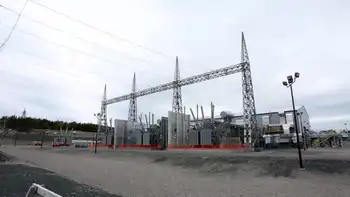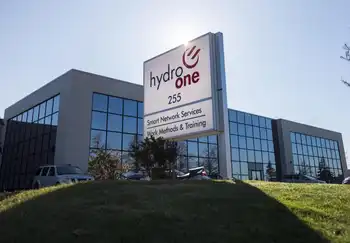Isotope shortage blamed on AECL
Atomic Energy of Canada Ltd. senior vice-president Brian McGee told the country's nuclear safety watchdog here that the radioisotope-producing National Research Universal (NRU) reactor will likely be shut down until late December or early January to bring it up to current safety standards.
But AECL doesn't yet have all the parts necessary for the required upgrading and is hunting them around the world, McGee said.
Similar management and engineering blunders also mean a new facility intended to replace that 50-year-old reactor is six years behind schedule, official documents show, with no isotope production expected until the end of next year.
The lengthy NRU shutdown and lack of backup production mean a fresh supply of radioactive materials essential to diagnosing and treating cancers won't flow to hospitals across North America until the second week of January, McGee said during a tempestuous appearance before the Canadian Nuclear Safety Commission.
Commission president Linda Keen criticized AECL for suggesting that the particular safety upgrades were merely optional and not a strict condition of the reactor's operating licence.
"This is absolutely revisionist," said the visibly upset Keen. "This should have been done, and it was the clear expectation of the commission that it would be done. You are, and were, in violation of your licences given to you by Canadians."
The safety upgrading was supposed to have been completed by the end of 2005 but AECL officials didn't realize this was a strict condition of the reactor's operating licence, McGee said.
Instead, they thought the upgrading could be phased in throughout 2008 during the four-day shutdowns scheduled monthly for routine maintenance.
Despite repeated questioning by members of the safety commission, McGee did not explain how AECL managed to so badly misinterpret its licence obligations. Senior commission staff told the hearing the conditions were spelled out in documents stretching back 10 years.
The upgrade would connect two pumps to an emergency power supply designed to work even if the Chalk River reactor is hit by a major earthquake. The pumps circulate the heavy water that prevents the reactor from overheating. Although the NRU also boasts other safety systems, the earthquake-resistant cooling system is considered a key part of the defence against a possible core meltdown.
The current NRU shutdown began Nov. 18 for four days of routine maintenance. By Nov. 20, however, AECL and commission staff realized that the emergency power supply was supposed to have been put in two years ago, but hadn't been.
"I can't tell you why we didn't recognize the upgrades were required," McGee said.
The upgrading controversy is the latest in a series of missteps that have plagued attempts to protect Chalk River's position as the world's leading producer of life-saving medical isotopes.
An estimated 45 per cent of current world production of molybdenum-99 comes from the NRU. Moly-99 has a half life of only 66 hours and must be shipped daily to hospitals, where it is used to generate the radioisotope technetium-99, employed in four out of five nuclear medicine procedures.
But a new isotope facility intended to replace the aging reactor has suffered a series of design errors, engineering foul-ups and slipshod testing, all extensively documented at the nuclear safety commission.
At one point, AECL concealed safety problems from the watchdog for almost three months.
It was originally budgeted at $160 million and scheduled to begin operations in 2002. No current cost figures have been made public.
Related News

Financial update from N.L energy corp. reflects pandemic's impact
ST. JOHNS - Newfoundland and Labrador's Crown energy corporation reported a pandemic-related profit loss from the first quarter of 2020 on Tuesday, along with further complications to the beleaguered Muskrat Falls hydroelectric project.
Nalcor Energy recorded a profit loss of $171 million in the first quarter of 2020, down from a $92 million profit in the same period last year, due in part to falling oil prices during the COVID-19 pandemic.
The company released its financial statements for 2019 and the first quarter of 2020 on Tuesday, and officials discussed the numbers in a livestreamed presentation that detailed the impact of the…





